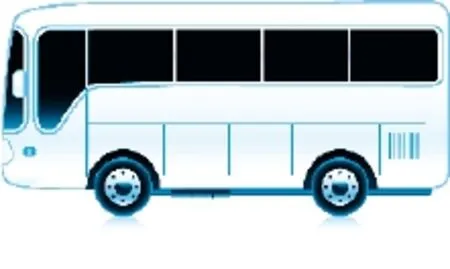祈使句中考考點(diǎn)歸納
陳傳光供稿
【典型試題】
1. 句型轉(zhuǎn)換,每空一詞。
(1) Look at the hills, the fl owers and the trees. (改為否定句)________ ________ at the hills, the fl owers and the trees.
(2) Be careful next time, my good friends! (改為否定句)________ ________ careful next time, my good friends!
(3) Please don’t go and tell him the news. (改為肯定句)________ ________ and tell him the news.
(4) You can get on the bus right now. (改為祈使句)________ ________ the bus right now.
(5) Let’s tell him to drink plenty of water. (改為反義疑問句)
Let’s tell him to drink plenty of water, ________ ________?
2. 把下列直接引語(yǔ)改為間接引語(yǔ)、間接引語(yǔ)改為直接引語(yǔ)。
(1) “Get your things ready and go to bed early.” he said to us.He told us ________ ________ our things ready and go to bed early.
(2) “Don’t show the students around the lake.” the girl said to me.The girl told me ________ ________ ________ the students around the lake.
(3) They asked the teacher to help them with their English.“________ ________ with our English.” they said to the teacher.
(
4) The teacher told us not to get up late.“________ ________ up late.” the teacher told us.
3. 單項(xiàng)選擇
( ) (1) ________ me the truth, or I am going to leave the room.A. Telling B. To tell C. If you don’t tell D. Tell


( ) (2) —________! There is a car coming!—Oh. Thanks.A. Look over B. Look up C. Look on D. Look out
( ) (3) ________ be late again.A. Please B. Do C. Don’t D. Not
( ) (4) —________! The traf fic is moving fast!—Thanks, I will.A. Stop B. Look out C. Watch D. Don’t move
( ) (5) —________ you good luck in the new year!—The same to you .A. Hope B. Want C. Wish D. Like
4. 根據(jù)所給漢語(yǔ)完成句子,每空一詞。
(1) 別擔(dān)心,我會(huì)按時(shí)到達(dá)那里的。________ ________. I’ll be there on time.
(2) 快點(diǎn),不然你會(huì)錯(cuò)過早班車的。________ ________, or you’ll miss the early bus.
(3) 請(qǐng)不要在公共場(chǎng)所吐痰。________ ________ ________ in a public place.
(4) 保持健康,遠(yuǎn)離疾病。________ healthy and ________ ________ ________ illness.
(5) 勞駕,請(qǐng)讓我過去!Excuse me. Please ________ me ________.

【考點(diǎn)歸納】
一、祈使句的意義
表示請(qǐng)求、命令、勸告、征求對(duì)方意見等。它的主語(yǔ)是you(聽話人),通常不用說出。祈使句肯定結(jié)構(gòu)中的謂語(yǔ)動(dòng)詞一律用動(dòng)詞原形;祈使句句末用驚嘆號(hào)或句號(hào)。
二、祈使句的結(jié)構(gòu)
1. 祈使句的肯定結(jié)構(gòu)
(1). 行為動(dòng)詞+其他句子成分。例如:
Come here, Lili! Guess what gift Dad has sent you!
Call me when you fix the time.
Take the medicine twice a day.
(2) 連系動(dòng)詞+表語(yǔ)。例如:
Be careful, boys and girls. Now get on the bus.
在口語(yǔ)中,連系動(dòng)詞be有時(shí)可以省略。例如:
Glad to see you, Mrs. Jiang.
2. 祈使句的否定結(jié)構(gòu)
祈使句的否定結(jié)構(gòu)一律在肯定結(jié)構(gòu)之前加Don’t (Do not)。例如:
Don’t mention it.
Don’t worry about me. I’ll take care of myself.
表示請(qǐng)求、勸告的祈使句,可以和please連用,語(yǔ)氣委婉。例如:
Please say hello to Aunt Susan.Please don’t mention it. Go and board the plane now.“Oh, no! Don’t eat me, please!” the mouse cried.
3. 祈使句的強(qiáng)調(diào)語(yǔ)氣祈使句在動(dòng)詞前加上do可以加強(qiáng)語(yǔ)氣, 常有make sure“一定”“務(wù)必”的意思。例如:Do remember to lock the door when you leave.= Make sure you lock the door when you leave.
4. 以Let引導(dǎo)的祈使句以Let引導(dǎo)的句子也是祈使句,常用來表示建議或說話人的態(tài)度。例如:Let’s go and tell the others to join us.Let me have a look at your leg.let’s和let us開頭的祈使句,在構(gòu)成反義疑問句時(shí)要注意:Let’s climb the hill, shall we?(let’s祈使對(duì)象包括說話人和聽話人,用shall we)Let us climb the hill, will you? (let us祈使對(duì)象只是說話人一方,用will you征求對(duì)方意見)
5. 陳述句轉(zhuǎn)換成祈使句只有以you作主語(yǔ),而且表示要求、命令等的陳述句才可以轉(zhuǎn)換成祈使句。例如:You can listen to the music after school today.→Listen to the music after school today.You mustn’t go to play computer games now.→Don’t go to play computer games now.
6. 祈使句由直接引語(yǔ)轉(zhuǎn)換成間接引語(yǔ)祈使句由直接引語(yǔ)轉(zhuǎn)換成間接引語(yǔ),如是肯定句用to連接;否定祈使句用not to連接。句型用tell/ask
sb. (not) to do sth.例如:“Please sit down.” She said to us.→She asked us to sit down.“Don’t be late again.” the teacher said.→The teacher told us not to be late again.
【典型考題】
單項(xiàng)選擇。
( ) 1. ________ carefully, Michael! There’s a school ahead.A. Drive B. To drive C. Drove D. Driving
( ) 2. ________ wake up your sister, Ben. She needs a good sleep.A. Don’t B. Doesn’t C. Aren’t D. Can’t
( ) 3. —Sorry I’m late.—________ tell me the bus broke down again!A. Never to B. Not C. Don’t D. No
( ) 4. —What are the rules at your school?—Don’t run in the hallways and ________ arrive late for class.A. not to B. won’t C. don’t D. no
( ) 5. —Put some butter on a slice of bread and add a teaspoon of butter. What else?—Next ________ some tomatoes.A. cut up B. cuts up C. to cut up D. cutting up
( ) 6. —I am leaving for Xisai Mountain this afternoon.—________ you have packed everything.A. To be sure B. Been sure C. Being sure D. Be sure
( ) 7. ________ play with fire. ________ with fire is dangerous.A. Don’t; Playing B. Not; Playing C. Don’t; play D. Not to; To play


